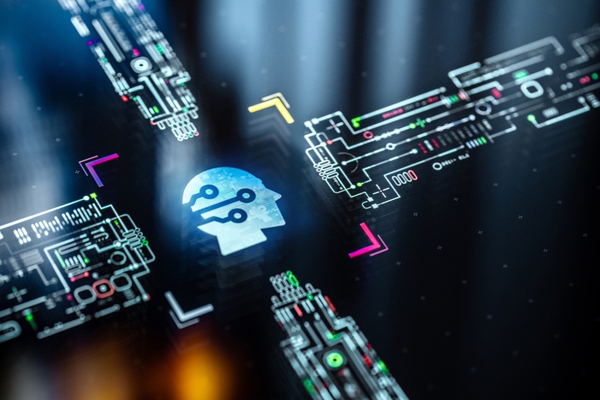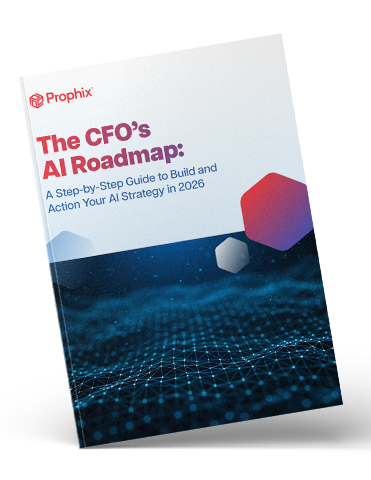Where’s my job gone?

Jeremy Swinfen Green explores the nature of intelligence and the ability of artificial intelligence to perform the type of work that humans are good at. TLDR: AI has many practical applications in business, but while it may replace humans in specific, very routine tasks, most jobs require multiple different types of intelligence, which today’s AI systems are unable to demonstrate
Artificial Intelligence (AI) is rapidly advancing, and with it comes a growing sense of both excitement and dread. We are constantly told that AI can write articles, pass exams, diagnose diseases, and even create works of art. As a result, many people are asking: If machines can do all this, what will be left for humans to do?
To answer this question, we need a better understanding of how to define intelligence. When we say that AI is intelligent, what kind of intelligence do we mean? How does that compare to the full range of human abilities? And what are the implications for the world of employment?
IQ tests as a measure of intelligence
Most of us are familiar with IQ tests, the traditional way of measuring intelligence. These tests typically assess areas such as verbal reasoning, logical thinking and spatial awareness. (They also include tests of memory and processing speed, though these are really cognitive abilities rather than types of intelligence.) AI systems tend to exhibit the kind of intelligence typically measured by IQ tests, although ironically, they don’t always perform especially well on them.
But human intelligence is far richer and more complex than the types of mental processing that IQ tests measure. Psychologists have long argued that there are many other kinds of intelligence. Howard Gardner’s Theory of Multiple Intelligences proposes a broader range of intelligences, including “interpersonal” (or emotional), kinesthetic (related physical dexterity) and “intrapersonal” (or self-analytical). Other frameworks include wisdom, applied problem-solving, spiritual intelligence, and expressive or persuasive intelligence.
These broader, more nuanced abilities are what make us effective not just as workers, but as communicators, decision-makers, team workers and leaders.
This is the key point. Many people assume that because AI is highly efficient at certain tasks, it will replace the humans who currently perform those tasks. For example, some argue that we no longer need doctors because AI can diagnose illnesses more accurately. Or that we don’t need accountants because AI can spot tax savings faster and more cost-effectively.
That may be true - to a point. But diagnosing is only part of what doctors do. And finding tax loopholes is only one task in an accountant’s job. Peter Capelli at the Wharton business school gives a powerful instance. Computer coding, many people argue, will be taken over by AI, and so coders will all lose their jobs. However, Capelli points out that coders only spend around 30% of their time coding. The rest is spent negotiating with clients about functionality and cost. AI will be ill-suited to undertaking this very significant part of their jobs.
The harder, more subtle parts of these roles are deeply human. People bring a variety of different intelligences to their work, which AI cannot easily replicate. Let’s take a closer look at these types of intelligence, starting with those commonly measured in IQ tests: linguistic, logical, and spatial intelligence.
Linguistic Intelligence
Linguistic intelligence is the ability to understand and use language effectively, through writing, signing or speaking. In many ways, AI excels in this area. It can translate text, summarise information, and even generate new content quickly and efficiently.
However, AI lacks true understanding, creativity, and emotional depth. So while it might do well drafting a contract or summarising a research paper, it’s far less effective at tasks that require originality or persuasion, like writing a marketing strategy or negotiating a deal. That said, AI can still be an invaluable assistant in those processes.
Verdict: AI does well in areas like (non-literary) translation, routine customer service conversations and simple copywriting (e.g. writing search engine ads or image descriptions). But jobs that rely on creative thinking and emotional intelligence will remain firmly human for the foreseeable future.
Logical-Mathematical Intelligence
This involves analytical thinking, problem-solving, and working with numbers. AI is particularly strong in this domain. It excels at tasks like data analysis and statistical modelling. And while current AI models may still struggle with abstract reasoning or extending models beyond their training data, future systems will likely become more advanced.
However, very few jobs rely solely on logical intelligence. Even highly analytical roles, such as financial trading, require a mix of logic, intuition, and market insight.
Verdict: Routine white-collar jobs, such as data entry, bookkeeping, or inventory tracking, are most at risk. But for most people, AI will be a welcome assistant, handling the heavy maths so humans can focus on more interesting or strategic work.
Spatial Intelligence
Spatial intelligence is the ability to visualise and manipulate objects in space. It is used in fields such as architecture, engineering and design. AI can already perform well in many areas here, especially in 3D modelling and image generation. This type of intelligence is also useful in areas like manufacturing and autonomous vehicle control. However, AI still lacks the aesthetic judgment and creative vision that humans bring to fields such as product design or graphic design.
Verdict: There’s a real risk from AI to jobs involving routine, predictable physical tasks. Certain blue-collar jobs, such as factory and warehouse work, are already being heavily impacted. Driving jobs may also be affected, although this is proving harder to achieve than early advocates had led people to believe. In design-related fields, AI will be a valuable tool but is unlikely to replace the human touch, especially in products meant to be experienced by people.
Intelligence beyond IQ tests
It’s clear that AI is highly capable in areas related to verbal, logical, and spatial intelligence, and it may well take over certain (probably low-level) roles in these fields. But most roles require more than the intellect needed to perform well in IQ tests. So how does AI score when it comes to other sorts of intelligence?
Several other types of intelligence beyond those measured in IQ tests have been proposed. It might be contentious to examine each one, as not everyone agrees on what these other types of intelligence are. However, there are certain types of intelligence that many people agree exist, including emotional intelligence, wisdom, and applied problem-solving (or engineering intelligence).
Let’s take a look at how AI is likely to affect jobs where these sorts of “non-IQ” intelligence are a critical factor.
Emotional Intelligence (EQ)
Emotional intelligence (EQ) is the ability to perceive, understand and manage emotions, both one’s own and those of other people. It is a core human trait that underpins many forms of social interaction and collaboration. EQ enables people to build trust, resolve conflict and influence others.
EQ is an area where AI systems, despite rapid advances, remain fundamentally limited. AI can, for instance, perform sentiment analysis or simulate empathy in scripted customer service roles; but it is not always very good at these tasks as it does not feel emotion. This makes it hard for it to forge authentic relationships with most people (there are exceptions – very lonely people may be prepared to suspend disbelief, for example) or respond to the ever-shifting dynamics of a conversation with a human.
There are many jobs that have a high requirement for EQ. In medicine (despite the fact that surgeons are notorious for having poor bedside manners), education and retail, EQ is essential. Business leaders generally become leaders because they have high EQ rather than high IQ (although that helps too). And anyone who works in a team will find that success depends on a real-time and accurate understanding of complex emotional and social cues, something machines are unlikely to replicate meaningfully.
Take negotiation: persuading someone needs far more than using a logical argument. It involves timing, tone, empathy, credibility and an understanding that other people don’t always think or behave logically and may respond positively to surprising incentives. AI might help generate persuasive content, but it cannot read a room or inspire trust as a human can.
Another element of emotional intelligence is the ability to understand groups of people (as opposed to individuals). The ability to navigate informal hierarchies, social alliances, and cultural subtleties demands emotional sensitivity as well as contextual awareness. Today’s AI cannot engage effectively with human social ecosystems.
One area where AI is showing promise is in the field of psychotherapy. While most people would agree that the strongest part of any therapy session is the relationship between the therapist and the patient, in some circumstances AI can stand in for the therapist. Where patients are self-diagnosing by looking for causes of problems, AI can be a useful tool, as it can when a therapist is unavailable. In addition, AI can be used as a useful tool for therapists, helping with first contacts, suggesting alternative coping mechanisms to the therapist, and keeping patients involved in between treatment sessions.
Wisdom
Wisdom is sometimes defined as the combination of knowledge and insight, usually acquired through experience. It involves the ability to synthesise or combine knowledge from one area with knowledge from another area.
Humans appear wise when they apply knowledge from some of the diverse domains of which they have experience into the problem at hand, enabling them to make better decisions that consider potential, unlikely or long-term consequences because they are based on a very wide set of knowledge that is not always obviously relevant.
AI is inevitably poor at this. While it may have access to information about many different circumstances, it lacks, at least for the moment, true understanding that would enable it to take insight from one area and apply it usefully in an unrelated area – the conceptual leaps that true innovators display. For example, it is hard to be sure that an AI would follow the moral norms that might seem obvious to humans, perhaps when designing the safety features of an automated gold mine, unless those norms were specifically coded into the AI’s training base. This is because morality is a separate domain from engineering and not necessarily relevant from a purely logical perspective.
Wisdom is a common requirement in business, where it manifests as the ability to plan multi-step actions in uncertain environments. An uncertain environment - to an AI - is one where it is necessary to take account of variables that are hard to measure (such as the emotional state of customers and employees), or hard to predict, (such as the behaviour of competitors, economic volatility or changes in weather patterns).
AI can optimise supply chains or play chess at superhuman levels because these are process driven and largely predictable (if you have enough processing power; and AI is after all little more than a statistical calculating machine). But it is poor at handling ambiguity, because there is a lack of data, or deception, because EQ will be needed as well as logic.
Engineering Intelligence
Applied problem solving is a critical skill in business: the ability to design, build and optimise systems in the physical world. It is most obviously seen in formal engineering disciplines (e.g. mechanical, civil or software engineering). But I would argue that most business processes are susceptible to engineering in pursuit of the solution to a problem (such as the need for greater efficiency or accuracy).
AI excels in some applications of engineering intelligence: it can help in code debugging or highlighting machine maintenance needs. To do this it needs first to be able to recognise that a problem exists and then it needs to be able to propose a solution.
Problems that are signalled by certain data (like increasing noise in a machine or a rise in task completions) are relatively easy for AI to recognise. However, AI may be unable to recognise that some problems exist because they don’t have experience of a problem or the wisdom to know that a set of problematic circumstances in one area may have relevant to the circumstances it is currently engaged with.
Where AI can recognise a problem then, given the right training data, it may be able to propose solutions to the problem, based perhaps on solutions that have worked in the past. But AI will often struggle with open-ended, real-world constraints such as budgets, human motivations, and variability in the wider ecosystem. In other words, it is unlikely to display the engineering intelligence shown by a human being who resolves a newly risen business risk.
So will we need an HR department in the future?
AI excels in structured, repetitive tasks such as statistical analysis and process automation. It is particularly useful when there are large amounts of data to process. However, most work tasks are not like this. Instead they are one-off, unpredictable and open ended. They are tasks where the correct result isn’t always obvious and where any final situation may still need “selling” to colleagues (or in some situations to a judge).
Unlike AI, humans excel in these complex tasks, which require the ability to order unstructured information in a useful way, using creativity, social insights, wisdom or even gut feel. Of course, humans don’t always get to the right answer: their emotional drivers are complex and they may be unable to process all the required information. However, (most) humans display moral intelligence, the ability to understand right from wrong and to behave ethically. An AI will only do this when the relevant data is used to train it. This will always be a challenge because morality is both contextually and culturally very variable.
The truth seems to be, certainly for now and perhaps for the foreseeable future, most jobs will not be displaced by AI. Yes of course some will be (and some already have been). But it is much more likely that AI will change the nature of much work, with humans successfully fulfilling hybrid roles that combine AI’s analytical power with human judgment.
Humans, we must always remember, are more than the ability to perform will in IQ tests. Most jobs require many different forms of intelligence. The ability to process data is only one task, and a task that most humans will be very glad to delegate to a machine.
Main image courtesy of iStockPhoto.com and skynesher

Jeremy Swinfen-Green
Most Viewed
Winston House, 3rd Floor, Units 306-309, 2-4 Dollis Park, London, N3 1HF
23-29 Hendon Lane, London, N3 1RT
020 8349 4363
© 2025, Lyonsdown Limited. Business Reporter® is a registered trademark of Lyonsdown Ltd. VAT registration number: 830519543





